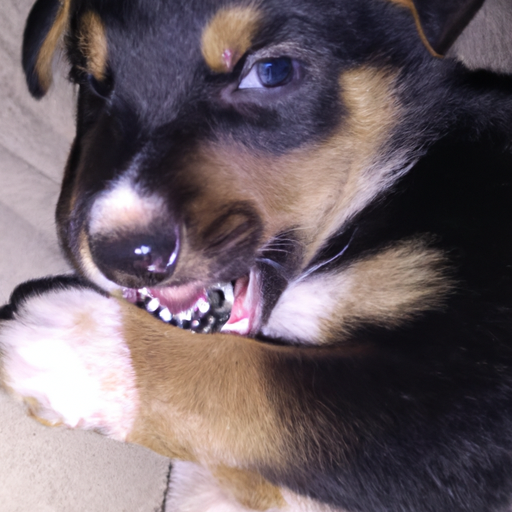Understanding Your Puppy’s Teeth Timeline
Just like humans, your beloved canine friend also goes through a teeth development stage. This process, referred to as “teething”, often begins when the puppy is around 3 weeks old.
- Deciduous Teeth – You’ll first notice some tiny needle-like teeth sprouting in their mouth. These are the deciduous or ‘baby’ teeth.
- Adult Teeth – By the time they reach 3 to 6 months of age, these baby teeth start to fall out, replaced by permanent adult teeth.
Rest assured, this is a natural process and a crucial part of their growth and development.
What to Expect When Your Puppy is Teething
During the teething period, your puppy may exhibit some signs that can be a cause for worry. Don’t fret – these are usually normal and part and parcel of this developmental stage.
- Increased chewing on toys, furniture, and even your hands or feet.
- Finding tiny teeth around the house.
- Increased drooling.
- Slight aggression or irritability.
How You Can Help Your Teething Puppy
As a caregiver, you play an essential role in easing this transition for your furry buddy. Here are some ways you can help:
- Chew Toys – Provide plenty of chew toys to satisfy their urge to gnaw and to protect your furniture.
- Dental Chews – These can help clean their mouth and soothe sore gums.
- Regular Vet Check-ups – Ensure regular vet visits to keep tabs on their dental health.
Common Misconceptions about Puppy Teething
Sometimes, you might hear some theories about puppy teething that can be alarming. Here are some common misconceptions and the truths behind them:
| Misconception | Truth |
|---|---|
| Puppies lose teeth like humans do. | Puppies often swallow their lost teeth while eating or playing. It’s rare to find a lost tooth. |
| Teething causes severe health issues. | While it can be uncomfortable, teething is a normal process and doesn’t cause severe health problems. |
FAQs about Puppy Teething
Q: Does teething hurt my puppy?
A: While it can cause discomfort, it’s not typically painful. Imagine it as the feeling you get when a tooth is loose.
Q: What if my puppy hasn’t lost any teeth by 6 months?
A: It’s best to consult your vet if there are no signs of teething by 6 months.
Q: Can I brush my puppy’s teeth during teething?
A: Yes, brushing can help keep their mouth clean and get them used to regular dental care.
Remember, being a caregiver is all about understanding and helping your puppy through their growth phases. And teething is just one of them. With patience, care, and love, you can ensure your furry friend sails through this stage with ease.



